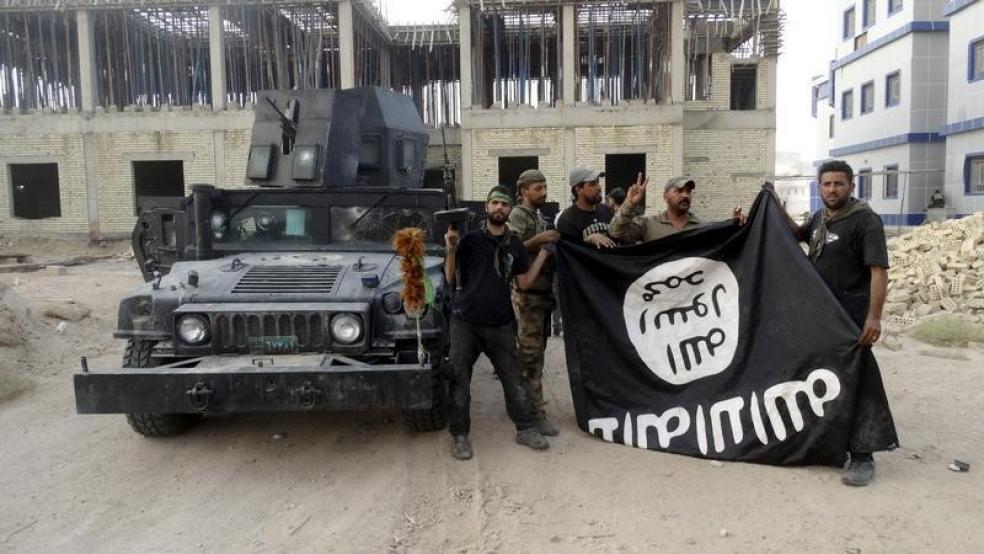The U.S. military’s push to cut off the cash flow to Islamic extremists has taken an explosive turn.
On Monday, defense officials told CNN that the U.S. dropped a pair of 2,000-pound bombs on a building in Mosul, Iraq, that contained potentially millions in currency belonging to ISIS.
Related: With ISIS Making Millions, U.S. Boosts Its Attacks on Oil Fields
Officials said that intelligence efforts had determined that the site, now reduced to rubble, was a "cash collection and distribution point” for ISIS, which is believed to take in tens of millions of dollars each month.
The mission seems to be an extension of the recent Defense Department push to pinch ISIS in its wallet by hitting the extremist network’s oil infrastructure.
While ISIS generates most of its revenue through black market oil and antiquities sales, the group also finances itself through taxation and extortion within the territory it controls.
Defense officials signaled that the unusual airstrike could be the first of many by the U.S.-led coalition as it pushes to dislodge the terror group that has become a quasi-state inside Iraq and Syria.
Related: The Fight Against ISIS Has New Price Tag: $5 Billion and Counting
And the price tag for the effort keeps going up.
New figures released by the Pentagon on Monday show that as of Dec. 15 the U.S. had spent $5.53 billion on the anti-ISIS effort, which started on Aug. 8, 2014. The average daily cost comes to $11 million over 495 days of operations.
As expected, the Air Force picked up most of the tab, with $3.8 billion, or 69 percent of the overall cost, spent on operations, including $2.8 billion on daily airstrikes inside Iraq and Syria. The Army comes in a distant second, spending $725 million on the effort, about 13 percent of the total.





